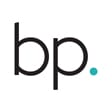Accrual Accounting
Definition
This accounting approach involves recording income and expenses when they are earned or incurred, regardless of when the actual cash transaction occurs. It contrasts with cash accounting, where transactions are recorded only upon the exchange of cash.
Key Takeaways
- Accrual Basis Accounting vs. Cash Basis Accounting: Understanding the fundamental differences between these two methods is crucial.
- Detailed Financial Picture: The accrual method offers a more accurate and comprehensive view of a company’s financial status.
- Impact on Cash Flow Management: While accrual accounting gives a better overall view of financial health, it is important for businesses to also manage their cash flow effectively.
- Importance in Strategic Decision-Making: For business owners and managers, accrual accounting is vital for making informed decisions.
- Compliance and Reporting: Accrual basis accounting is often required by law for larger businesses and is in line with Generally Accepted Accounting Principles (GAAP).
- Application Across Business Stages: From startups to established businesses, the accrual accounting method has its implications.
In accrual basis accounting, accrued revenue is recognized when a service is performed or a product is delivered, not when the payment is received. This method offers a more comprehensive view of a company’s financial health by accounting for all earned income and incurred expenses within the period they occur.
Startup Entrepreneurs
For startup entrepreneurs, choosing between accrual accounting and cash basis accounting can significantly influence both financial management and investor perceptions. Under this method, revenue and expenses are recorded when earned or incurred, irrespective of cash exchanges. This method offers a comprehensive view of a company’s financial health, aligning with the accrual basis, which matches revenue with related expenses. It’s particularly beneficial for startups seeking investor funding, as it accurately reflects financial performance.
Conversely, cash accounting records transactions only upon actual cash transactions. While simpler, it may not always provide a complete picture of a startup’s financial status, as it overlooks earned but unreceived income or incurred but unpaid expenses.
Startups weighing these options should consider their specific needs. This method offers detailed financial insights, crucial for growth and investor appeal, but demands more robust bookkeeping practices. Cash basis accounting, being straightforward, is beneficial for immediate cash flow tracking but may fall short in portraying long-term financial health.
Ultimately, the decision impacts a startup’s financial clarity and future strategic choices, with each method offering distinct advantages and limitations.
Pre-Planning Process
While accrual accounting may not directly fit into the initial steps of the pre-planning process, its principles can offer valuable insights that enhance this foundational stage. Understanding both the accrual method and cash basis accounting helps entrepreneurs think more critically about their future financial structure.
During pre-planning, while the focus is primarily on customer analysis, core offering identification, and business model development, the approach to financial management can inform crucial aspects of business strategy. The accrual method allows for a more nuanced view of revenue recognition and expense matching. This perspective can be particularly insightful when projecting future revenue streams and assessing the long-term financial viability of proposed business models.
An early understanding of the principles of accrual accounting can guide entrepreneurs in thinking beyond immediate cash flow, prompting considerations about how revenue and expenses will be recorded and reported once the business is operational.
Incorporating the accrual method into the pre-planning thought process aids in developing a more comprehensive and forward-looking financial perspective.
Business Plan Document Development
In business plan document development, accrual accounting is key to creating realistic financial projections and effective budgeting. This method, in contrast to cash basis accounting, records revenue and expenses when they occur, not just upon cash transactions. This accrual basis approach provides a more accurate view of income and expenses, essential for forecasts like revenue predictions and profit & loss statements.
Unlike cash accounting, accrual offers a comprehensive financial picture, crucial for attracting investors and lenders. It aids in detailed budgeting, aligning resource allocation with future financial needs and business goals. In summary, this method is instrumental in shaping a business plan’s financial projections and funding strategies.
Impact on SMB Owners
For small and medium-sized business (SMB) owners, the adoption of accrual accounting can significantly transform their financial management approach. This accounting method offers a broader financial picture, crucial for both day-to-day operations and long-term strategic planning.
This method involves recording revenue and expenses as they are earned or incurred, rather than when cash is exchanged, as is the case with cash accounting. This shift from a cash method to an accrual method allows SMBs to better understand their true financial position. It leads to more accurate financial statements, providing insights into income and expenses that are not immediately apparent in cash basis.
For instance, an SMB might record accrued revenue for services rendered in a month, even if the payment is received later. This practice gives a clearer picture of earnings in that period, aiding in more informed decision-making. Similarly, recognizing expenses when they are incurred, rather than when they are paid, helps in understanding the actual financial obligations of the business.
Such practices are particularly beneficial in industries where transactions don’t align closely with cash flows. For example, a consulting firm may invoice clients long after services are provided, or a manufacturing business might incur expenses long before the revenue from those goods is realized. In these cases, accrual provides a more accurate representation of financial health.
The strategic advantage of this approach lies in its ability to offer a realistic view of an SMB’s profitability and financial health. It enables better forecasting, budgeting, and planning, which are critical for the growth and sustainability of a business. By adopting this method, SMBs position themselves for more effective management of their finances, leading to more informed strategic decisions and potentially better financial outcomes.
Business Students and Academics
For business students and academics, the study of accrual accounting goes beyond textbook theory, offering vital insights into the practical aspects of financial management. This area of accounting serves as a bridge between academic concepts and their real-world applications, making it a critical component of business education.
In undergraduate and graduate courses, students should delve into accrual accounting to understand how it differs fundamentally from cash basis. Courses focusing on the former method will cover how revenue and expenses are recorded when they are earned or incurred, regardless of cash movement. This approach gives a more accurate reflection of a company’s financial health, evident in more precise financial statements.
Advanced courses should explore the evolution and nuances, including its impact on reporting income and expenses. Students will benefit from courses in financial management and reporting, managerial bookkeeping, and financial statement analysis. These courses often include case studies and practical examples, showing how the accrual method influences business decisions, tax strategies, and compliance with generally accepted accounting principles.
In conclusion, a comprehensive understanding of accrual accounting is indispensable for business students and academics. Its study not only enhances one’s grasp of financial concepts but also equips future business leaders with the tools to make more informed decisions. Encouraging a deeper exploration of accrual accounting in academic settings lays a solid foundation for practical financial management in the business world.
Frequently Asked Questions
- What is the main difference between accrual accounting and cash accounting?
In accrual accounting, revenue and expenses are recorded when they are earned or incurred, regardless of when actual cash flow occurs. This is in contrast to cash basis accounting, where transactions are only recorded upon the exchange of cash.
- How does accrual accounting affect cash flow management?
While accrual accounting provides a detailed view of a company’s overall financial health, it does not directly track cash flow. Businesses must keep a separate record of cash transactions to manage their actual cash position effectively.
- Is accrual accounting only suitable for large corporations?
No, businesses of all sizes can benefit from accrual accounting. This approach is particularly beneficial for companies dealing with deferred revenue or those that have significant time gaps between earning revenue and receiving cash.
- Isn’t accrual accounting too complex for small businesses?
While accrual accounting is more detailed than cash accounting, with appropriate systems and expertise, it can be effectively managed by businesses of any size. It offers a more accurate matching of revenue and expenses, essential for a true understanding of financial health.
- Does using accrual accounting complicate tax reporting?
While accrual basis accounting involves recognizing transactions when they occur, it can still align with tax reporting requirements. Proper planning and understanding of the accrual method can ensure compliance with tax regulations while maintaining accurate financial records.

